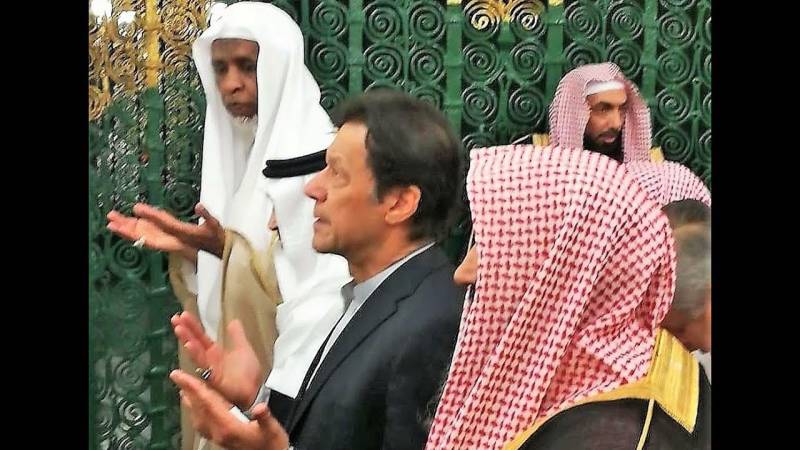
Pakistan's PM Imran Khan is inspired by the State of Medina. M Aamer Sarfraz argues that this is a powerful idea that needs better articulation and understanding. By ensuring freedom of religious beliefs and practices for all Medina citizens, Prophet Muhammad (pbuh) laid down the foundations for a multi-religious state in the future.
Imran Khan has better IQ and looks than most of our recent prime ministers put together. It is unfortunate that his Urdu is poor; therefore, his choice of words neither compensates nor supports his already limited articulation. He has a good heart and appreciates great ideas, but may not have the ability to echo those impressions. Nonetheless, he seriously believes that communication of complex thoughts on his part provides magic moments that can propel his audience into a world which mirrors his own mind. He does not realise that some concepts are so precarious that they can only take an honest fool to try to articulate them.
As a result of his extravagant endeavours, Pakistani public, liberals, and Islamists alike are making fun of the most splendid model of the State of Medina.
https://www.youtube.com/watch?v=vB_eBL8MqdU
Before we analyse from where, how, and why Khan has pinched this idea of establishing a State of Medina, we need to know what he means by it. Before giving a verdict that this inspiration is just a political stunt similar to Zia-ul-Haq’s Nizam-e-Mustafa, we need to know what is it really about?
Before we declare the whole conception irrelevant because the world has since changed in terms of its social, political, legal and financial outlook, we need to examine why are we so negative about it? Before we cast the initiative aside because various Muslim scholars have bitterly differed about what an Islamic state should be like, we need to appreciate those who were not as pessimistic. Finally, we need to assess our own mental state and decide why are we so irritated by this concept? Is it really about the concept or because we do not think Imran Khan is qualified in terms of his capability, capacity, and credibility to talk about it?
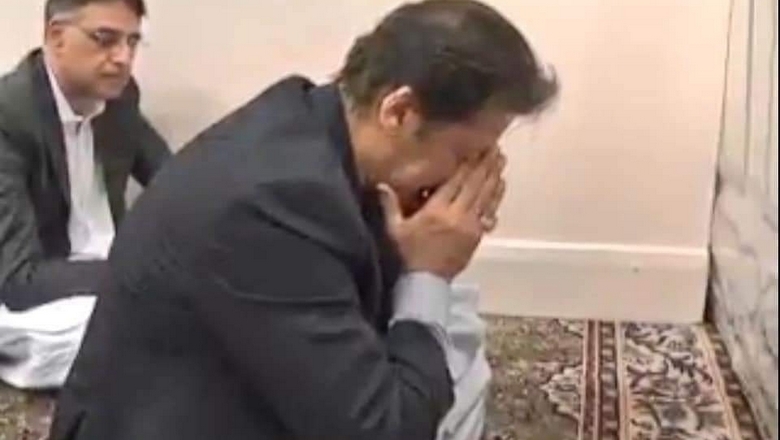 Imran Khan says that he wants to emulate the Sate of Medina in Naya Pakistan because it had laid down the foundations of a modern Muslim state. The State of Medina was actually built around a tribal accord called Misaq-e-Madina (Charter or Constitution of Medina) for a start. The Constitution of Medina remains a living example of finding resolution in a dispute where peace and pluralism were achieved not through military triumphs or concealed motives but rather through respect, acceptance, and denunciation of war.
Imran Khan says that he wants to emulate the Sate of Medina in Naya Pakistan because it had laid down the foundations of a modern Muslim state. The State of Medina was actually built around a tribal accord called Misaq-e-Madina (Charter or Constitution of Medina) for a start. The Constitution of Medina remains a living example of finding resolution in a dispute where peace and pluralism were achieved not through military triumphs or concealed motives but rather through respect, acceptance, and denunciation of war.
As specified by Yildirim (2009), the Medina Charter is arguably the first constitution ever written incorporating religion and politics.The premise for its formation was the welfare of the people, with the aim of delivering a reasonable standard of living for all its citizens. It gave its inhabitants equal rights irrespective of their gender, caste or creed without prejudice. It was also a precursor to emancipation of women, end of slavery, and fair distribution of wealth.
During Prophet Muhammad's last years in Mecca, a delegation from Medina representing its twelve important clans, invited him as a neutral outsider to Medina to act as the chief arbitrator for their community. This invitation was the aftermath of in-fighting in Medina involving its pagan and Jewish inhabitants for around 100 years which had caused a terrible civil strife. The delegation had pledged themselves and their fellow citizens to accepting the Prophet into their community and to protect him as if he was their own. In a region with a tradition of reliance on arms and strength in fighting ability, a belief that resolution of differences through mediation was unachievable except through a trustworthy outsider with no connections to the issues or the tribes, is quite pragmatic. The Prophet was a perfect fit for the requisites, in addition to his own ambition (given to him by God) of spreading peace and harmony, and to form a community from diverse groups through the teachings of the Quran.
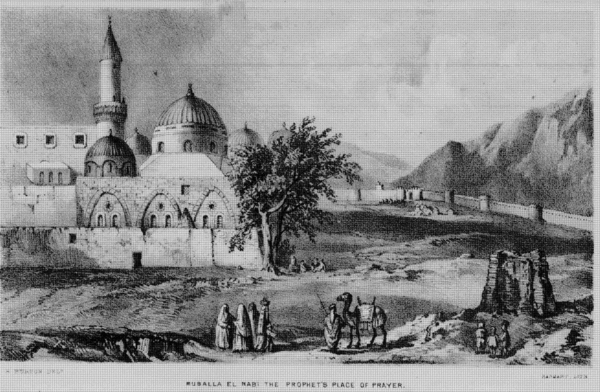 The Constitution of Medina was drawn up on behalf of Prophet Muhammad (pbuh) shortly after his arrival in Medina in 622 CE. The preamble of the document was an agreement operational between the believers and Muslims from Quraysh and Yathrib and those under them, and those who accompany them in war. All citizens (migrants, eight local tribes, and local Jewish tribes) were declared as one nation with a collective responsibility for their members’ actions with Muhammad (pbuh) as their mediatory authority. This Constitution was an embodiment of the Lord educating people through the pen (Quran 96:1-5) and transforming their thought processes through dialogue. A discourse among people resulted in peace that was achieved through consultation, deliberation, and seeking a covenant in which tribes felt that they would benefit and not be robbed of their status or be haunted by bitterness from the past. The aim of achieving peace by the formation of a community (Ummah) through respect and mutual acceptance resulting in pluralism highlights one of the ways in which the Prophet fought ignorance that often causes violence.
The Constitution of Medina was drawn up on behalf of Prophet Muhammad (pbuh) shortly after his arrival in Medina in 622 CE. The preamble of the document was an agreement operational between the believers and Muslims from Quraysh and Yathrib and those under them, and those who accompany them in war. All citizens (migrants, eight local tribes, and local Jewish tribes) were declared as one nation with a collective responsibility for their members’ actions with Muhammad (pbuh) as their mediatory authority. This Constitution was an embodiment of the Lord educating people through the pen (Quran 96:1-5) and transforming their thought processes through dialogue. A discourse among people resulted in peace that was achieved through consultation, deliberation, and seeking a covenant in which tribes felt that they would benefit and not be robbed of their status or be haunted by bitterness from the past. The aim of achieving peace by the formation of a community (Ummah) through respect and mutual acceptance resulting in pluralism highlights one of the ways in which the Prophet fought ignorance that often causes violence.
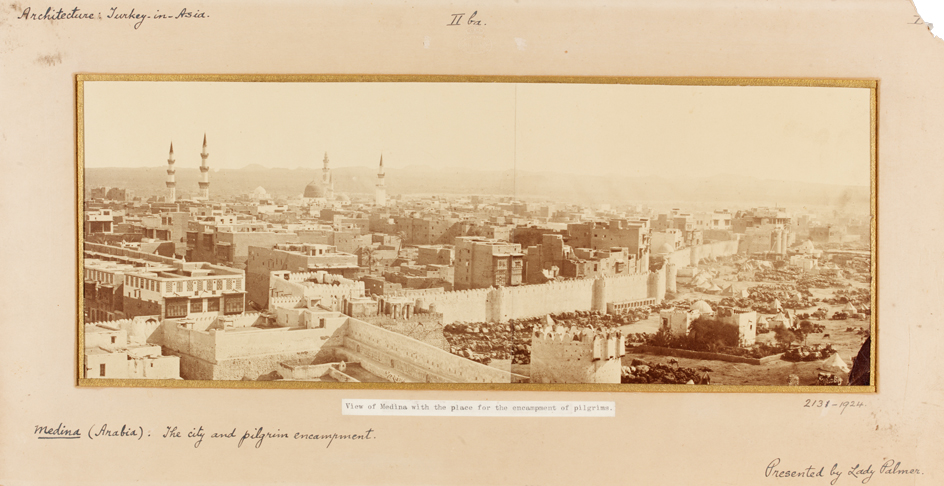
Several versions of the Constitution of Medina are found in history; the most reliable seems to be from the earliest source, Ibn Ishaq's Sirah Rasul Allah. The historical authenticity of the document is acknowledgedin the Quran (3:101-104).The Constitution is graciously accepted by even the most sceptical of Muslim and non-Muslim scholars as originating from the time of Muhammad (pbuh) with a glimpse of the beginnings of a movement that was to spread far and wide within a couple of decades. It shows that Islam rejects the use of compulsion and force in religion and that the most effective way to resolve conflicts is through mediation. It also shows the Prophet’s outstanding leadership and legendry diplomatic skillswhere he is able to withhold a pure religious outlook in favour of a humanitarian ambition. The Constitution was a unifying document in a town that had diverse groups, cultures, religions, and languages. By ensuring freedom of religious beliefs and practices for all Medina citizens, Prophet Muhammad (pbuh) laid down the foundations for a multi-religious state in the future.
Two important features of the Constitution of Medina are the definitions of ties between Muslims, and between Muslims and non-Muslims. It holds relationships based on the religion of Islam above those of kinship among Muslims. That was a critical initiative in the development of a small Muslim community in Medina, which turned into larger a Muslim community, and eventually became an empire. This belief and its tradition paved the way for several examples set in war and peace subsequently, and lives on among Muslims to this day.
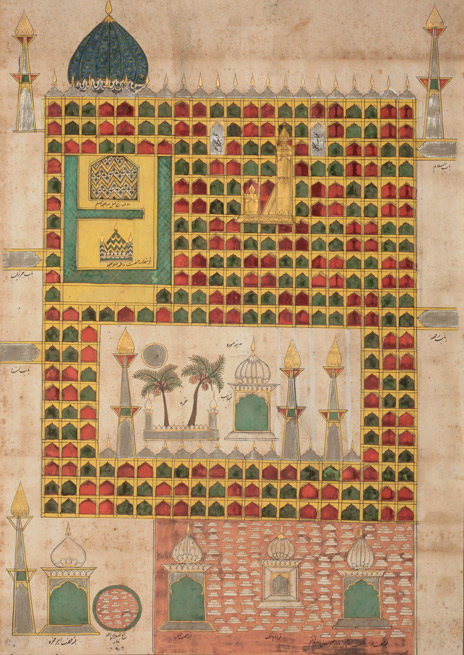
Non-Muslims often fail to understand its dynamics, and sometimes pay a heavy price in the process. Prophet Muhammad (pbuh) did not create an Ummah by denouncing all religions except Islam or by recognizing Islam as the only religion. He instead united all residents of the town under one standard of righteous living and moral principles — a brotherhood of man. The Constitution gave unique (security, autonomy) and equal rights (religious, cultural, political) to non-Muslims living with Muslims.
In the light of the above, how do you think Imran Khan is faring so far in terms of pursuing his goal of emulating the State of Medina in Pakistan?
Someone close to me was actually wondering yesterday whether he has got it all wrong. She was especially curious about it with regards to his understanding of the national economy. She was hoping that Khan does not take us back to how the original State of Medina started economically, “You see…they did not have much available to live on at that time – for eating, drinking, wearing…”.
(to be continued)
The writer is a Political Psychiatrist based in London
https://www.youtube.com/watch?v=ClSYb_nZshM
Imran Khan has better IQ and looks than most of our recent prime ministers put together. It is unfortunate that his Urdu is poor; therefore, his choice of words neither compensates nor supports his already limited articulation. He has a good heart and appreciates great ideas, but may not have the ability to echo those impressions. Nonetheless, he seriously believes that communication of complex thoughts on his part provides magic moments that can propel his audience into a world which mirrors his own mind. He does not realise that some concepts are so precarious that they can only take an honest fool to try to articulate them.
As a result of his extravagant endeavours, Pakistani public, liberals, and Islamists alike are making fun of the most splendid model of the State of Medina.
https://www.youtube.com/watch?v=vB_eBL8MqdU
Before we analyse from where, how, and why Khan has pinched this idea of establishing a State of Medina, we need to know what he means by it. Before giving a verdict that this inspiration is just a political stunt similar to Zia-ul-Haq’s Nizam-e-Mustafa, we need to know what is it really about?
Before we declare the whole conception irrelevant because the world has since changed in terms of its social, political, legal and financial outlook, we need to examine why are we so negative about it? Before we cast the initiative aside because various Muslim scholars have bitterly differed about what an Islamic state should be like, we need to appreciate those who were not as pessimistic. Finally, we need to assess our own mental state and decide why are we so irritated by this concept? Is it really about the concept or because we do not think Imran Khan is qualified in terms of his capability, capacity, and credibility to talk about it?
 Imran Khan says that he wants to emulate the Sate of Medina in Naya Pakistan because it had laid down the foundations of a modern Muslim state. The State of Medina was actually built around a tribal accord called Misaq-e-Madina (Charter or Constitution of Medina) for a start. The Constitution of Medina remains a living example of finding resolution in a dispute where peace and pluralism were achieved not through military triumphs or concealed motives but rather through respect, acceptance, and denunciation of war.
Imran Khan says that he wants to emulate the Sate of Medina in Naya Pakistan because it had laid down the foundations of a modern Muslim state. The State of Medina was actually built around a tribal accord called Misaq-e-Madina (Charter or Constitution of Medina) for a start. The Constitution of Medina remains a living example of finding resolution in a dispute where peace and pluralism were achieved not through military triumphs or concealed motives but rather through respect, acceptance, and denunciation of war.As specified by Yildirim (2009), the Medina Charter is arguably the first constitution ever written incorporating religion and politics.The premise for its formation was the welfare of the people, with the aim of delivering a reasonable standard of living for all its citizens. It gave its inhabitants equal rights irrespective of their gender, caste or creed without prejudice. It was also a precursor to emancipation of women, end of slavery, and fair distribution of wealth.
During Prophet Muhammad's last years in Mecca, a delegation from Medina representing its twelve important clans, invited him as a neutral outsider to Medina to act as the chief arbitrator for their community. This invitation was the aftermath of in-fighting in Medina involving its pagan and Jewish inhabitants for around 100 years which had caused a terrible civil strife. The delegation had pledged themselves and their fellow citizens to accepting the Prophet into their community and to protect him as if he was their own. In a region with a tradition of reliance on arms and strength in fighting ability, a belief that resolution of differences through mediation was unachievable except through a trustworthy outsider with no connections to the issues or the tribes, is quite pragmatic. The Prophet was a perfect fit for the requisites, in addition to his own ambition (given to him by God) of spreading peace and harmony, and to form a community from diverse groups through the teachings of the Quran.
 The Constitution of Medina was drawn up on behalf of Prophet Muhammad (pbuh) shortly after his arrival in Medina in 622 CE. The preamble of the document was an agreement operational between the believers and Muslims from Quraysh and Yathrib and those under them, and those who accompany them in war. All citizens (migrants, eight local tribes, and local Jewish tribes) were declared as one nation with a collective responsibility for their members’ actions with Muhammad (pbuh) as their mediatory authority. This Constitution was an embodiment of the Lord educating people through the pen (Quran 96:1-5) and transforming their thought processes through dialogue. A discourse among people resulted in peace that was achieved through consultation, deliberation, and seeking a covenant in which tribes felt that they would benefit and not be robbed of their status or be haunted by bitterness from the past. The aim of achieving peace by the formation of a community (Ummah) through respect and mutual acceptance resulting in pluralism highlights one of the ways in which the Prophet fought ignorance that often causes violence.
The Constitution of Medina was drawn up on behalf of Prophet Muhammad (pbuh) shortly after his arrival in Medina in 622 CE. The preamble of the document was an agreement operational between the believers and Muslims from Quraysh and Yathrib and those under them, and those who accompany them in war. All citizens (migrants, eight local tribes, and local Jewish tribes) were declared as one nation with a collective responsibility for their members’ actions with Muhammad (pbuh) as their mediatory authority. This Constitution was an embodiment of the Lord educating people through the pen (Quran 96:1-5) and transforming their thought processes through dialogue. A discourse among people resulted in peace that was achieved through consultation, deliberation, and seeking a covenant in which tribes felt that they would benefit and not be robbed of their status or be haunted by bitterness from the past. The aim of achieving peace by the formation of a community (Ummah) through respect and mutual acceptance resulting in pluralism highlights one of the ways in which the Prophet fought ignorance that often causes violence.
British Museum. Nasser D. Khalili Collection of Islamic Art, MSS 745.2 (© Nour Foundation. Courtesy of the Khalili Family Trust)
Several versions of the Constitution of Medina are found in history; the most reliable seems to be from the earliest source, Ibn Ishaq's Sirah Rasul Allah. The historical authenticity of the document is acknowledgedin the Quran (3:101-104).The Constitution is graciously accepted by even the most sceptical of Muslim and non-Muslim scholars as originating from the time of Muhammad (pbuh) with a glimpse of the beginnings of a movement that was to spread far and wide within a couple of decades. It shows that Islam rejects the use of compulsion and force in religion and that the most effective way to resolve conflicts is through mediation. It also shows the Prophet’s outstanding leadership and legendry diplomatic skillswhere he is able to withhold a pure religious outlook in favour of a humanitarian ambition. The Constitution was a unifying document in a town that had diverse groups, cultures, religions, and languages. By ensuring freedom of religious beliefs and practices for all Medina citizens, Prophet Muhammad (pbuh) laid down the foundations for a multi-religious state in the future.
Two important features of the Constitution of Medina are the definitions of ties between Muslims, and between Muslims and non-Muslims. It holds relationships based on the religion of Islam above those of kinship among Muslims. That was a critical initiative in the development of a small Muslim community in Medina, which turned into larger a Muslim community, and eventually became an empire. This belief and its tradition paved the way for several examples set in war and peace subsequently, and lives on among Muslims to this day.

The Mosque of the Prophet Muhammad at Medina. Nasser D. Khalili Collection of Islamic Art, British Museum.
Non-Muslims often fail to understand its dynamics, and sometimes pay a heavy price in the process. Prophet Muhammad (pbuh) did not create an Ummah by denouncing all religions except Islam or by recognizing Islam as the only religion. He instead united all residents of the town under one standard of righteous living and moral principles — a brotherhood of man. The Constitution gave unique (security, autonomy) and equal rights (religious, cultural, political) to non-Muslims living with Muslims.
In the light of the above, how do you think Imran Khan is faring so far in terms of pursuing his goal of emulating the State of Medina in Pakistan?
Someone close to me was actually wondering yesterday whether he has got it all wrong. She was especially curious about it with regards to his understanding of the national economy. She was hoping that Khan does not take us back to how the original State of Medina started economically, “You see…they did not have much available to live on at that time – for eating, drinking, wearing…”.
(to be continued)
The writer is a Political Psychiatrist based in London
https://www.youtube.com/watch?v=ClSYb_nZshM
